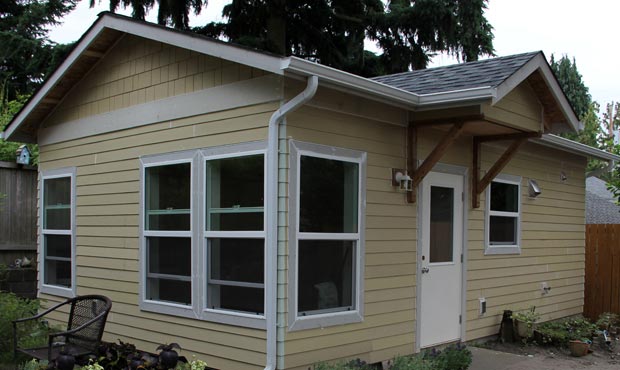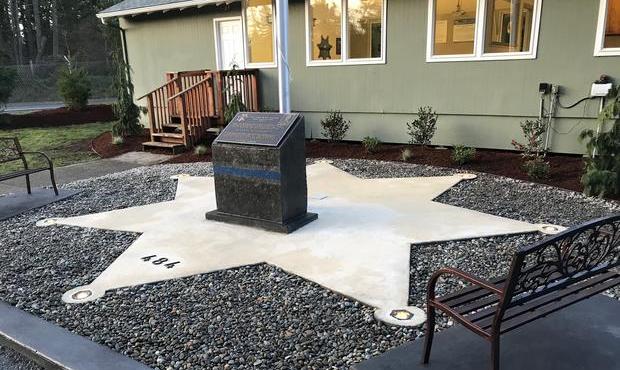Queen Anne Community Council appeals the city’s backyard cottage ordinance
Oct 22, 2018, 3:12 PM

(Courtesy of Backyard Cottage Blog)
(Courtesy of Backyard Cottage Blog)
The lack of affordable housing has been an ongoing issue in Seattle, and the city is hoping the creation of backyard cottages will offset the need.
But the Queen Anne Community Council has filed an appeal to the city’s new backyard cottage ordinance, citing concerns over its impact on neighborhoods.
“The opposition has nothing to do with increasing neighborhood density or NIMBYs or anything like that,” said Marty Kaplan with the council. “We just feel that the environmental impact study that they delivered was completely inadequate and deficient in considering many different things.”
RELATED: How backyard cottages could open up Seattle’s housing market
Such changes were last proposed by the city in 2016 and successfully appealed by the Queen Anne Community Council, arguing that allowing these units will negatively impact parking and utilities, and undermine the stability of the neighborhood.
“If you can imagine having three houses on one site, with no parking requirements… and allow 12 unrelated people to live on one property,” Kaplan said.
“Cumulatively, there could be substantial impacts, and the most egregious of these impacts would be not requiring owner occupancy. You can imagine that developers will speculate, buy up homes, tear them down, and build three houses on each site.”
The city is looking to simplify and streamline the process for homeowners to build so-called accessory dwelling units (ADUs) on their properties, known colloquially as backyard cottages or in-law units.
Homeowners would then be able to rent these units out, providing an additional source of income that could then be put toward anything from day-to-day living to mortgage payments. Alternatively, it also opens up more housing options for renters.
Is the City Council not respecting neighborhoods’ individual needs?
“There’s a lot of room for compromise,” Kaplan said. “But you should know that when we first appealed it a couple years ago, I went to councilmember Mike O’Brien and said, ‘You’re treating the city as one homogeneous piece of landscape. There’s neighborhoods in the city that can’t absorb any more parking.'”
Kaplan says O’Brien wants to get rid of single-family zoning all together, and is not considering each neighborhood’s individual needs.
“We found ways that you could divide up the city into neighborhoods and respect every neighborhood and find a host a different compromises. But frankly, Mike just turned me down. He says that what’s good for Capitol Hill on a 3,200 square-foot lot is the same thing that’s good up in Wedgwood on a 10,000 square-foot lot, which makes no sense whatsoever.”
New regulations are looser in nature and would not require off-street parking, allow ADU construction on smaller lots, and would not require the homeowner to live on-site. The city also released its updated environmental review, which reached the same conclusions as the last one. It argues that such housing will have little negative impact on neighborhoods, with regards to parking, utilities, and aesthetics.
“The city is growing substantially with no particular strategy or plan to accommodate the infrastructure, or to charge any kind of development fees to cover the impacts, so you’ve got this free-for-all out there.”













